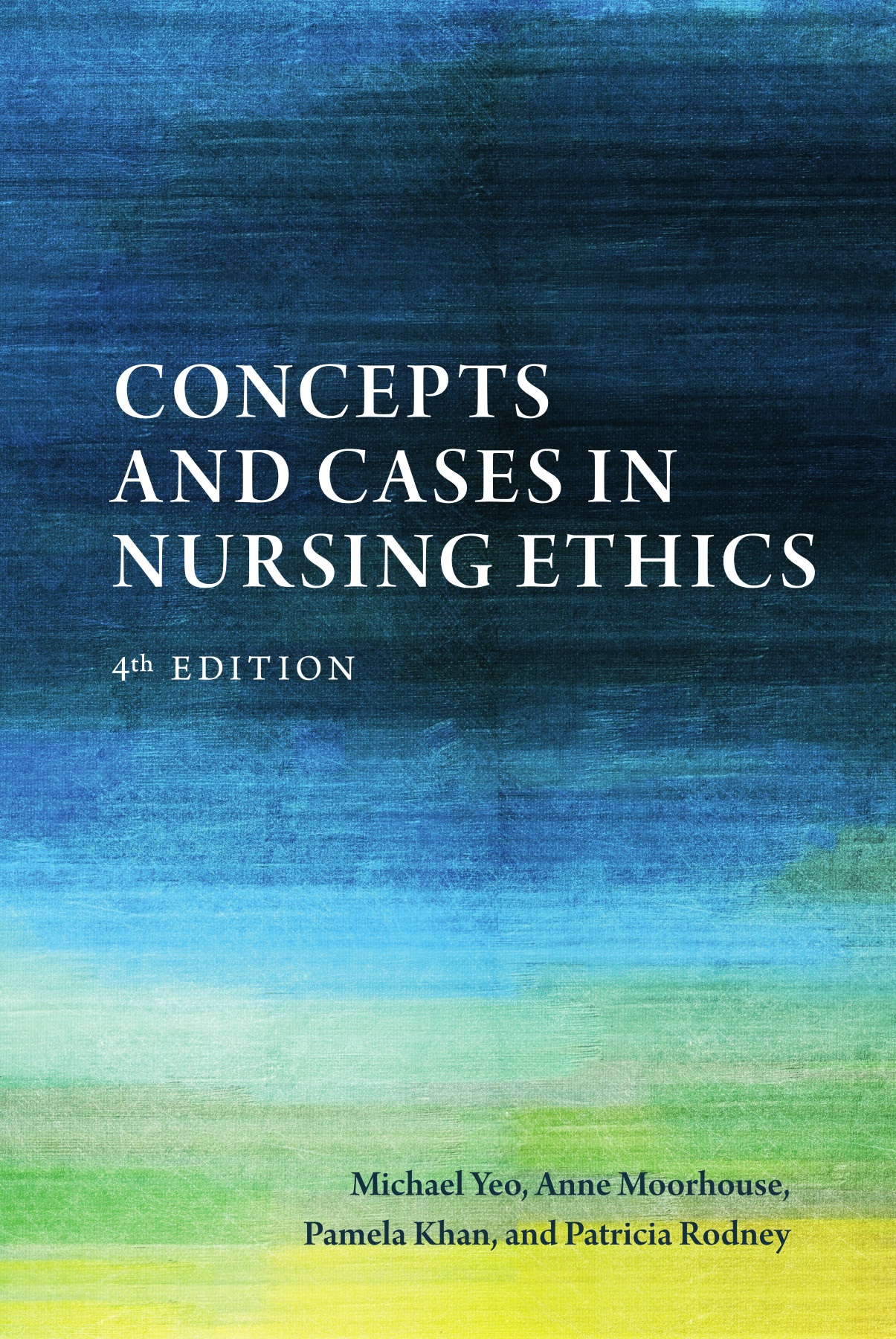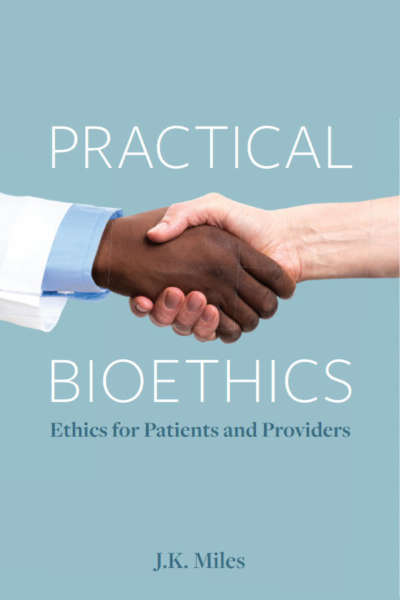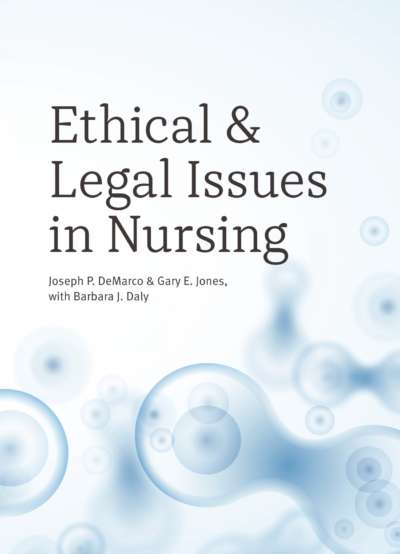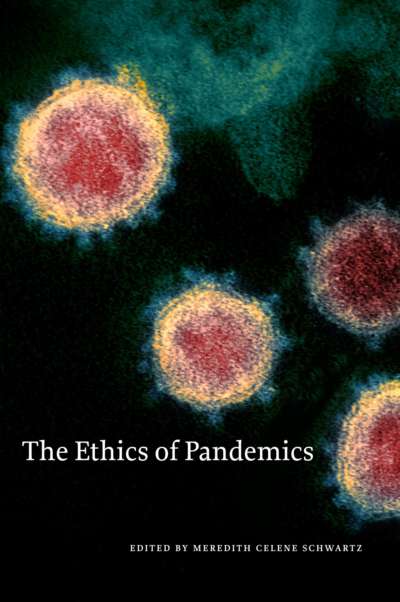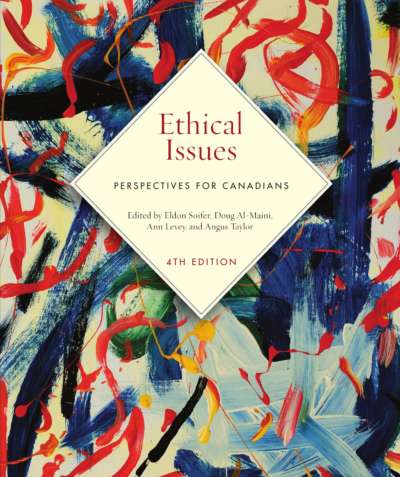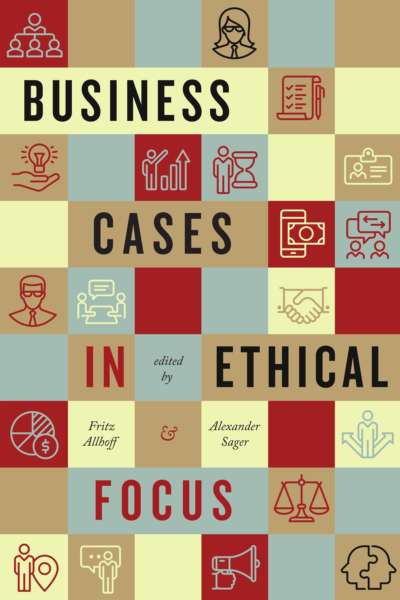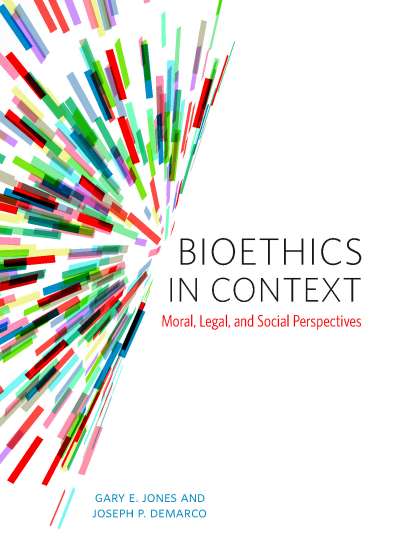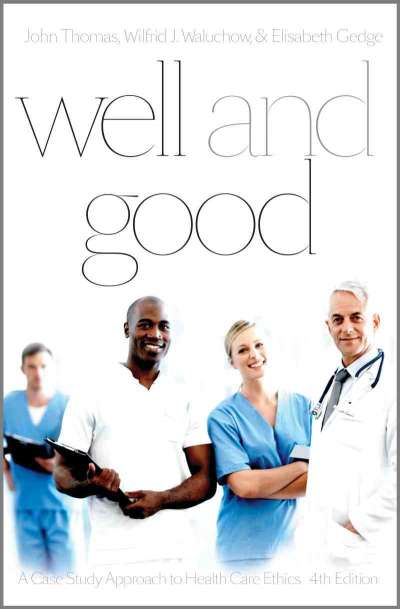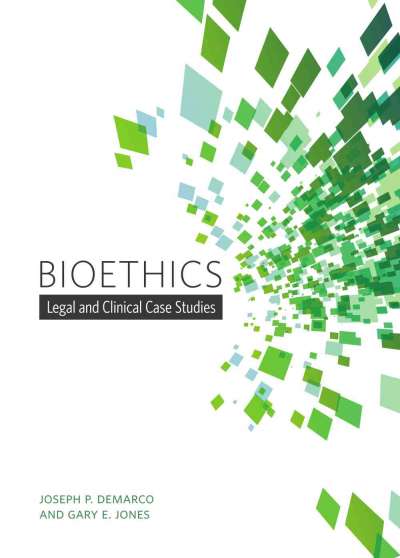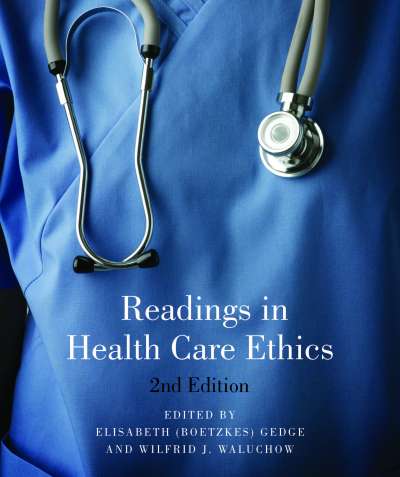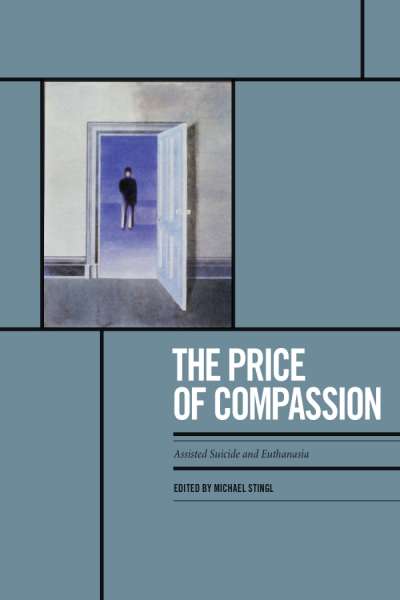A portion of the revenue from this book’s sales will be donated to Doctors Without Borders to assist the humanitarian work of nurses, doctors, and other health care providers in the fight against COVID-19 and beyond.
Concepts and Cases in Nursing Ethics is an introduction to contemporary ethical issues in health care, designed especially for Canadian audiences. The book is organized around six key concepts: beneficence, autonomy, truth-telling, confidentiality, justice, and integrity. Each of these concepts is explained and discussed with reference to professional and legal norms. The discussion is then supplemented by case studies that exemplify the relevant concepts and show how each applies in health care and nursing practice. This new fourth edition includes an added chapter on end-of-life issues, and it is revised throughout to reflect the latest developments on topics such as global health ethics, cultural competence, social media, and palliative sedation, as well as ethical issues relating to COVID-19.
This book can be purchased on its own or packaged with The Ethics of Pandemics for an additional $10. If you wish to order a package, please contact your Broadview representative or customer service.
Comments
“One thing that sets Concepts and Cases in Nursing Ethics apart from many other nursing ethics texts is its effective weaving of theory into thoughtful discussions of case studies that have direct relevance to nursing. Student nurses and registered nurses should find much of value in the book’s ‘application to practice’ approach, which offers insights not only into the nature of ethics but also into the ways in which ethical analysis can help develop ethical nursing practice.” — Derek Sellman, Faculty of Nursing, University of Alberta
“Ethical training is increasingly necessary in order to help nurses distill the concepts of right and wrong conduct. This text, in its fourth edition, provides nurses at various stages of their careers with basic ethical decision-making theory supplemented with timely and relevant case studies designed to show why value-based care is—and will always be—an integral component of effective health care.” — Blair Henry, Senior Ethicist, Assistant Professor at the University of Toronto
PREFACE (Michael Yeo)
INTRODUCTION (Michael Yeo)
- 1. Outline of the Book
- 2. What Is Nursing Ethics?
- 3. Nursing Ethics, Bioethics, Health Care Ethics
- 4. Nursing Ethics and Nursing
- 5. Models of the Nurse-Patient Relationship
- 6. A Knowledge Base in Ethics for Nursing
- 7. Ethical Analysis and the Nursing Process
- 8. Case-Based Learning
- References
CHAPTER 1: A Primer in Ethical Theory (Michael Yeo)
- 1. Morality and the Sense of “Oughtness”
- 2. Morality and Ethical Analysis
- 3. Accountability and Morally Principled Decisions
- 4. Ethical Analysis and Ethical Theory
- 5. Theories about Morality
- 6. Ethical Theories
- 7. Conclusion
- References
CHAPTER 2: Beneficence (Michael Yeo, Anne Moorhouse, and Pamela Khan)
- 1. Beneficence and Benefiting Others
- 2. Beneficence, Self-Concern, and Duty
- 3. Challenges Determining What Is Beneficial
- 4. Paternalism
- 5. Beneficence: Caring for Individuals in Context
- 6. Conclusion
- Case Studies
- Case 1: Parens Patriae and the Case of J.J. (Michael Yeo and Anne Moorhouse)
- Case 2: Disagreement about Treatment Decision-Making (Anne Moorhouse and Michael Yeo)
- Case 3: Prescribed Opioids for Chronic Pain (Anne Moorhouse and Michael Yeo)
- Case 4: Humanitarian Work in War-Torn Areas (Anne Moorhouse and Michael Yeo)
- Case 5: Global Health, Cultural Differences, and Nursing Values (Michael Yeo, Anne Moorhouse, and Pamela Khan)
- References
CHAPTER 3: Autonomy (Michael Yeo, Anne Moorhouse, and Pamela Khan)
- 1. The Meaning(s) of Autonomy
- 2. Autonomy and Consent
- 3. Nursing Ethics and Consent
- 4. Limiting Autonomy: Paternalism, Protection of Others, and Justice
- 5. Autonomy, Advocacy, and Empowerment
- 6. Conclusion
- Cases Studies
- Case 1: Advocating on Behalf of Vulnerable and Voiceless Patients (Michael Yeo and Anne Moorhouse)
- Case 2: Hassan Rasouli, Withdrawal of Life Support, and Limits of Autonomy (Michael Yeo and Anne Moorhouse)
- Case 3: Scott Starson, Mental Illness, and Capacity to Decide (Anne Moorhouse and Michael Yeo)
- References
CHAPTER 4: Truth-Telling and Truthfulness (Michael Yeo, Pamela Khan, and Anne Moorhouse)
- 1. Truthfulness and Truth-Telling in Health Care
- 2. Arguments for and against Truthfulness in Health Care
- 3. Cultivating Good Judgment
- 4. Truthfulness and the Circle of Care
- 5. Conclusion
- Case Studies
- Case 1: Issue Concerning Communication of a Mental Health Diagnosis (Pamela Khan, Anne Moorhouse, and Michael Yeo)
- Case 2: Cultural Values of Family Opposed to Informing Patient of Bad News Diagnosis (Pamela Khan, Anne Moorhouse, and Michael Yeo)
- Case 3: Patient Request for Bad News Information in Trauma Centre (Anne Moorhouse, Pamela Khan, and Michael Yeo)
- Case 4: Disclosing and Reporting a Patient Safety Incident (Michael Yeo, Anne Moorhouse, and Pamela Khan)
- References
CHAPTER 5: Privacy and Confidentiality (Michael Yeo, Anne Moorhouse, and Pamela Khan)
- 1. Health Professionals, Persons, and the Personal
- 2. Privacy and Confidentiality
- 3. Breaches of Confidentiality
- 4. Information-Sharing, Patient Authorization, and the Circle of Care
- 5. Determining Whether Information Is Confidential
- 6. Exceptions to the Rule of Confidentiality
- 7. Privacy and Confidentiality in the Digital Age
- 8. Privacy, Confidentiality, and Social Media
- 9. Conclusion
- Case Studies
- Case 1: Confidentiality in an Occupational Health Unit (Anne Moorhouse, Pamela Khan, and Michael Yeo)
- Case 2: Disclosing Information to Patient’s Friends and Family (Anne Moorhouse, Pamela Khan, and Michael Yeo)
- Case 3: Release of Confidential Information to Third Parties without Consent (Anne Moorhouse, Michael Yeo, and Pamela Khan)
- Case 4: Nurse Privacy and Social Media (Michael Yeo, Anne Moorhouse, and Pamela Khan)
- References
CHAPTER 6: Justice (Michael Yeo, Anne Moorhouse, Patricia Rodney, and Pamela Khan)
- 1. Justice in the Distribution of Health Care and Resources for Health
- 2. Theories of Justice
- 3. Tensions and Conflict among Theoretical Orientations
- 4. Substantive Principles of Justice
- 5. Procedural Principles of Justice
- 6. Integrating Substance and Process
- 7. Levels of Resource Allocation and Decision-Making
- 8. Conclusion
- Case Studies
- Case 1: Tension between Access to Care versus Quality of Care (Anne Moorhouse, Pamela Khan, and Michael Yeo)
- Case 2: Allocation of Clinical Placements and Support for Clinical Education (Anne Moorhouse, Pamela Khan, and Michael Yeo)
- Case 3: Equitable Allocation of Nursing Time and Care (Michael Yeo, Anne Moorhouse, and Pamela Khan)
- Case 4: Triage and Rationing of Intensive-Care Beds during a Clinical Crisis (Anne Moorhouse and Pamela Khan)
- Case 5: Medical Tourism (Anne Moorhouse and Michael Yeo)
- Case 6: Jumping the Queue with Private Health Care (Anne Moorhouse and Michael Yeo)
- References
CHAPTER 7: Integrity (Michael Yeo, Anne Moorhouse, Pamela Khan, and Patricia Rodney)
- 1. Integrity Defined
- 2. Personal and Professional Integrity
- 3. Integrity and Multiple Obligations
- 4. Integrity and Moral Distress
- 5. Conclusion: From Moral Distress and Disengagement to Co-Operation and Moral Community
- Case Studies
- Case 1: Conscientious Reflection about Exposure to Risk in Context of a Pandemic (Michael Yeo and Anne Moorhouse)
- Case 2: Conscientious Objections to MAID at the Individual and Institutional Levels (Michael Yeo and Anne Moorhouse)
- Case 3: Hospital Overcrowding and Discharge Planning (Anne Moorhouse and Michael Yeo)
- Case 4: Responding to Mistreatment of Patients in Correctional Facility (Michael Yeo and Anne Moorhouse)
- References
CHAPTER 8: End-of-Life Decision-Making (Michael Yeo, Anne Moorhouse, Patricia Rodney, and Pamela Khan)
- 1. A Comprehensive Approach to End-of-Life Care
- 2. Exploring the Ethical Debate and Controversy about Assisted Death
- 3. Carter v. Canada, 2015
- 4. MAID Nursing Practice Implications
- 5. Conclusion
- Case Studies
- Case 1: Margot Bentley and Advance Care Planning (Michael Yeo and Anne Moorhouse)
- Case 2: Continuous Palliative Sedation Therapy (Michael Yeo and Anne Moorhouse)
- References
ADDENDUM: Reflections on the Coronavirus Disease 2019 (COVID-19) Pandemic: June 3, 2020
(Michael Yeo, Patricia Rodney, Anne Moorhouse, and Pamela Khan)
Index
Michael Yeo is a Professor in the Department of Philosophy at Laurentian University.
Anne Moorhouse is a Professor at Seneca College of Applied Arts and Technology and teaches bioethics at Ryerson University.
Pamela Khan is an Associate Professor, Teaching Stream, at the Lawrence S. Bloomberg Faculty of Nursing at the University of Toronto, and a member of the University of Toronto Joint Centre for Bioethics.
Patricia Rodney is an Associate Professor in the School of Nursing and a Faculty Associate with the W. Maurice Young Centre for Applied Ethics at the University of British Columbia.

